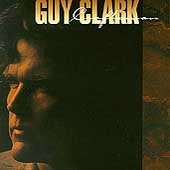
Disk 2

| ||||||||||||||||||||||||||||||||||||||||||||||||||||||||||||||||
Disk 1| 1. | Fool on the Roof (4:11)
|
9. | The Houston Kid (4:00)
|
2. | Fools for Each Other (4:16)
|
10. | Fool on the Roof Blues (2:35)
|
3. | Shade of All Greens (3:15)
|
11. | Who Do You Think You Are (3:25)
|
4. | Voila,an American Dream (3:48)
|
12. | Crystelle (3:04)
|
5. | One Paper Kid (3:27)
|
13. | New Cut Road (3:44)
|
6. | In the Jailhouse Now (3:49)
|
14. | Rita Ballou (3:12)
|
7. | Comfort and Crazy (3:08)
|
15. | South Coast of Texas (3:46)
|
8. | Don't You Take It Too Bad (4:04)
|
| Disk 2 1. | Heartbroke (3:02)
|
9. | Supply and Demand (3:14)
|
2. | The Partner Nobody Chose (3:08)
|
10. | Randall Knife (4:10)
|
3. | She's Crazy for Leavin' (2:54)
|
11. | The Carpenter (3:13)
|
4. | Calf-Rope (2:35)
|
12. | Uncertain Texas (2:27)
|
5. | Lone Star Hotel (3:23)
|
13. | No Deal (3:18)
|
6. | Blowin' Like a Bandit (2:40)
|
14. | Tears (2:48)
|
7. | Better Days (3:02)
|
15. | Fool in the Mirror (3:30)
|
8. | Homegrown Tomatoes (2:58)
|
| |||